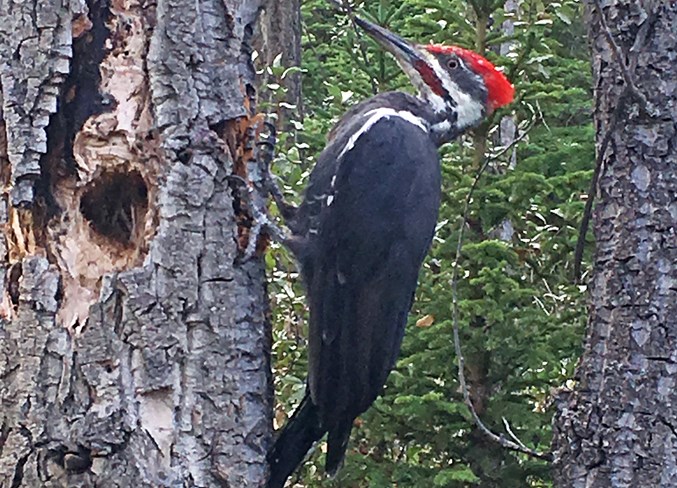Just when you think you’ve heard of every possible red tape delay to building housing and critical infrastructure in British Columbia, a new, ever-more-absurd government regulation comes along.
This time, it’s an empty hole.
Construction on a badly-needed, long-promised, $135 million middle and high school on Coquitlam’s Burke Mountain has been held up by an empty hole in a single tree.
The delay is caused by an overreaching policy brought in by the federal government—the result of regulations that stakeholders said would be a problem from the moment it was first proposed.
Last year, federal Environment Minister Steven Guilbeault created strict rules to further protect the Pileated Woodpecker, even though the bird is neither threatened nor endangered in Canada.
No one is saying woodpeckers shouldn’t be protected. But the old rules were working just fine.
Under the previous regulations, woodpecker nests were protected if they had eggs or birds living in them. This made sense and did the job of balancing the needs of the woodpecker with the community – as evidenced by the bird’s growing population. It was also in line with how most other bird habitat is handled.
But Guilbeault – over objections from industry associations representing agriculture, ranching, clean energy, and forestry – changed the regulation to say a Pileated Woodpecker nest, or a tree cavity that once housed a nest, had to be empty for three years before the tree could be removed.
“There really isn’t a lot of logic behind this decision,” Larry Thomas, environment manager at the Canadian Cattlemen’s Association, told National Post at the time. “Populations are extremely good across [the woodpecker’s] entire range in North America.”
Missing from the regulations was much discussion on how exactly to prove how a cavity has been vacant for three years when first found. It’s not a hotel; a woodpecker doesn’t stop by the front desk and check out at the end of a season. So the federal rules demand landowners monitoring nesting sites for three years – a difficult task when cavities are often 50 feet off the ground.
Not missing from the rules: the threat of jail for six months and a fine of up to $4 million for anyone caught cutting a tree with an empty cavity before they can prove it wasn’t occupied for three full years.
For the fast-growing Burke Mountain neighbourhood, every further delay is especially frustrating. The school that had been first promised by the BC NDP in the 2017 election didn’t materialize that term. In the 2020 provincial campaign, Premier John Horgan re-promised it, saying it would be open by September 2023.
Alas, the NDP finally got around to budgeting for the project in 2022, and a new 2026 opening date was announced. This is now in jeopardy due to delays around a tree cavity that once held a Pileated Woodpecker nest, but is now empty.
This is precisely the kind of delay and red tape that frustrates builders – whether they are working on a school, a hospital, a clean energy project, or housing. It drives up costs by forcing expensive monitoring, permit applications and expert intervention, and slowing down the project – at a time where inflation is pushing construction costs higher every month.
Adding to the strangeness of the Burke Mountain situation is the fact that there are hundreds of kilometres of protected, forested parkland behind the neighbourhood. Needless to say, there are plenty of tree options for a woodpecker to pick from.
Under Guilbeault’s rules, it’s possible (and hopefully likely) the federal government will grant a permit to move the tree – with its empty hole – to nearby Harper Park, adding even more cost. It’s not cheap to move mature trees.
But as the days drag by with little action on the site, the families of Burke Mountain get antsy about yet another delay for their long-promised school. And taxpayers will be on the hook for all of it.
Somewhere, you can almost hear Woody Woodpecker laughing.



